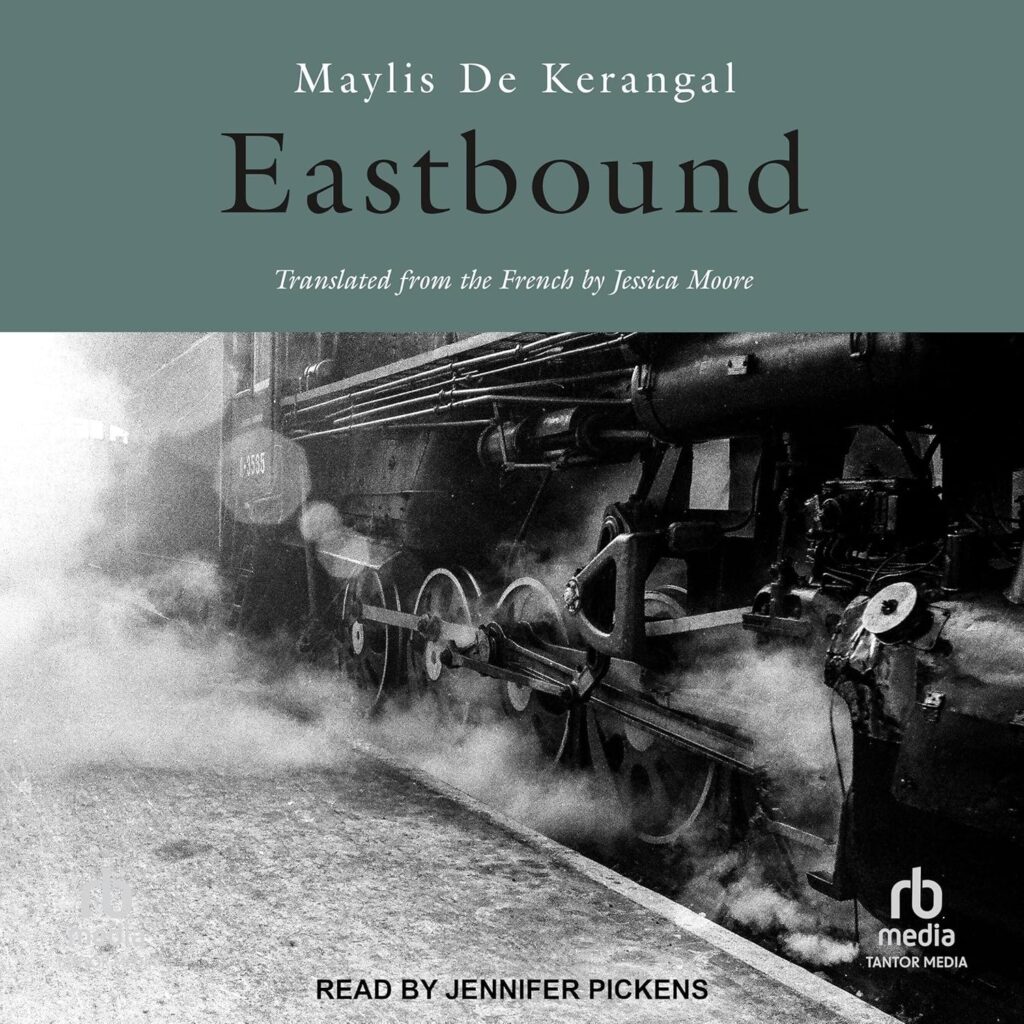Chris’s Pick
August 2024
Eastbound
Maylis De Kerangal
Translated by Jessica Moore
Archipelago Publishing
February 7, 2023
These guys come from Moscow and don’t know where they’re going. There’s a crowd of them, more than a hundred… their arms veiny and eyes pacing the train car…. guys lining the walls in passageways and corridors, sitting, standing, stretched out on the berths, letting their arms dangle, their feet dangle, letting their bored resignation dangle in the void. They’ve been on board for more than forty hours now, crammed together, squeezed into the liminal space of the train: the conscripts.
Aliocha is a twenty-year-old conscript, who hoped he would manage to avoid military service as all young single men in Moscow attempt to do. Without the necessary means that might erase the threat of service, they try for reprieves, false medical certificates, bribery, and finally try to find a woman, because at six months a pregnancy will grant an exemption.
But Aliocha is now one of a hundred on this train. As the train rushes towards the unknowable destination, the idea of escaping suddenly floods his very being. Run away, get out, defect, jump.
Eastbound takes place almost entirely on the Trans-Siberian train, the longest single rail line in the world, between Moscow and Vladivostok, a quarter of the circumference of the world. At the next stop, Aliocha steps off with the idea of desertion, but is brought up short by his own fears. “Who does he think he is? Before he runs, he still has to get past his filthy ignorance and know where he’s putting his feet.” He is the last to climb back into the train car.
Into his compartment comes a woman, older than he, a foreigner. Without shared language they introduce themselves. She is Hélène, and she is also fleeing east– from a love affair and an existential crisis. Aliocha manages to ask, in pantomime, for her help to hide him.
The story of two unlikely people in their quest for freedom is set against the background of the brutal landscape of Siberia. It is the exquisite writing, the language in this book, that not only kept me completely enthralled but sent me back to reread it a second time.
The first corridor is empty, everyone’s fast asleep—it’s outside that things are happening, the dawn raising up the forest at full tilt, lifting each trunk to vertical, the bluish underbrush perforated by rays charged with a carnal light, the taiga like a magnetic cloth, modulated to infinity by the new thickness of the air.
Languid when describing the nearly unchanging scenery, inside the train De Karangal’s sentences then race along, duplicating the movement of the Trans-Siberian, tumbling over each other as the tensions mount.
Train car follows train car, the same doors with warm sticky handles, the heavy panels sheathed in black rubber that must be unstuck one from the other spreading elbows out to horizontal, the same accordion-pleated vestibules that shake, where the temperature drops, where the ground whips past through gaps in the metallic floor—wood ties, gravel, patches of grass—the deserted corridors like gaping holes that snatch at them and they throw themselves in headfirst eyes riveted to the ground, they must not stop, they must do it fast and then they’re at Hélène‘s compartment.
The tension builds towards confrontation as the military guards search for their deserter and the violence we sensed in the young conscript emerges again with his fear and desperation.
A country I will probably never visit becomes real in Eastbound, and as grim as it sometimes sounds, made me want to see it, want to be there myself, (want to experience the sight of Lake Baikal as the Russians do, with cheers, and tears, and glasses of vodka).
I loved this book. It is short and perfect and just enough.
